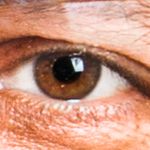- Home
- Stock Contributors
- Discussions
- Re: intellectual property issues
- Re: intellectual property issues
intellectual property issues
Copy link to clipboard
Copied
There is an increasing problem with Adobe labeling various image as intellectual property. This is designed to protect Adobe and not us.
I have one image that has been rejected twice. Labeled as IP violation. I even communicated with the originator of the piece (stained-glass) and they assured me there is no copyright assertion or filing.
It is only one image. But an increasing problem as everyone claims copyright to everything today.
Copy link to clipboard
Copied
If you are in contact with the artist of the stained-glass, I would think they would be willing to sign a property release.
Community Volunteer | I don't make the rules; I just try to explain them.
--------------------------------
Why did Little Miss Muffet step on the spider? Because it got in her whey.
Copy link to clipboard
Copied
Copyright does not have to be "claimed" to be in force. Everyone automatically owns copyright to the images they take with their camera, the artworks (such as stained glass) that they create, and other creative works. Even graffiti "artists" can claim copyright on their spray-painted "art". The only way for the Adobe Moderators to know that a copyright owner has approved your use of their work(s) commercially is for you to obtain a Product Release. Lacking that Release, all artistic works are going to be rejected.
Copy link to clipboard
Copied
Exactly. Suppose I created a work of art and I gave a photographer the OK to use the image as they see fit. So the photographer uses it in a calendar that becomes a very popular seller. Since I automatically own the copyright to the work of art, and since I "forgot" that I gave the photographer the right to use the photograph any way they want, I now want a percentage of the profits. The OP needs a release.
Community Volunteer | I don't make the rules; I just try to explain them.
--------------------------------
Why did Little Miss Muffet step on the spider? Because it got in her whey.
Copy link to clipboard
Copied
I am reverting to my original contention. It is all out of control. Just wait until you get slammed by PicRights with lawyers contending you owe $2500 for a single image of public officials (politicians) used 15 years ago.
Meanwhile, once I get approval for my own creation on Adobe, the "purchaser" now creates a 300,000 public copy for a bond measure. What do I get? Peanuts. It's the old adage. Today, if you are thinking of it, it’s probably illegal. Images of Barns in Vermont? Used to be our secret finds. Today, everything is potentially litigious. I really don't see how you can take any images of a cityscape.
Images of graffiti art. Now just how are you going to find the “tagger?”
So all comments here are basically supporting Adobe’s own CYA. None of the comments here protect my own legitimate copyright protections.
Copy link to clipboard
Copied
It's odd that you would cite the need for protection of your "own legitimate copyright protections", while contending that the copyright protections of other creators are "out of control"...
Copy link to clipboard
Copied
I am reverting to my original contention. It is all out of control. Just wait until you get slammed by PicRights with lawyers contending you owe $2500 for a single image of public officials (politicians) used 15 years ago.
By @bodywise02
Did you use someone else's picture withoout a licence? People of public interest (like stars and politicians) do not need to give their permission to you to use a picture of them in an editorial sense, but the photographer still owns the copyright to that picture, even if you grab it from the internet.
Meanwhile, once I get approval for my own creation on Adobe, the "purchaser" now creates a 300,000 public copy for a bond measure. What do I get? Peanuts. It's the old adage. Today, if you are thinking of it, it’s probably illegal. Images of Barns in Vermont? Used to be our secret finds. Today, everything is potentially litigious. I really don't see how you can take any images of a cityscape.
By @bodywise02
That's nonsense.
Images of graffiti art. Now just how are you going to find the “tagger?”
By @bodywise02
Not knowing who the creator is does not mean that the creator does not own the copyright. The rule says that if an artist is anonymous, it's protected for 70 years after the time of the first public appearance. If you are the wall owner, you can destroy the artwork, but you cannot claim the copyright.
So all comments here are basically supporting Adobe’s own CYA. None of the comments here protect my own legitimate copyright protections.
By @bodywise02
What's CYA? Basically, I know the copyright law as good as a layman can. Let's take your picture:
The artists own the copyright on the artwork. The owner (buyer of the artwork) has the house right, i.e. can prohibit images from the non-public space, or restrict the publication of such images. The photographer (you) owns the copyright of the picture, and noone can use your picture without your authorization. But the artist can take an own picture, or ask a different photographer to do a picture of the artwork and publish that, and he (the artist or the owner) can forbid you to publish your picture.
Copy link to clipboard
Copied
What's CYA?
=========
CYA = Cover Your Arse
CMA = Cover My Arse
Copy link to clipboard
Copied
What's CYA?
=========
CYA = Cover Your Arse
CMA = Cover My Arse
By @Nancy OShea
Oh yes. I should have googled and I should not have expected something highly intellectual.... 🧐
Copy link to clipboard
Copied
Copyright is out of control. If you take a picture of a cityscape, but there is a sign with Coca Cola or Acme Iron works, they now claim you must get a release. What about taking photos of graffiti. Now, what if you take photos of any block of buildings. Even taking photos of crowds of people in a protest march. How do you get a release?
My son sold an image of Carnegie Deli many years ago. Today, he would be prohibited. Copyright is out of control. And BTW does that protect all of us who are contributing? Pebble Beach claim they own rights to the famous Lone Cypress. But it is unenforceable.
Copy link to clipboard
Copied
Copyright, and the more general topic of Intellectual Property, is not "out of control". If a company registers a trademark, no other company, or individual, is allowed to make commercial use of that trademark, and that includes photography for commercial use (which is what Adobe Stock is). If you edit those signs and trademarks out of cityscape images, you can submit them.
As to shooting crowds of people, the law is quite simple. You cannot make commercial use of someone's image without their express opinion. That's why you don't see such images on Adobe. When I'm out and about and want to capture street scenes for possible submission to Adobe, I try to compose those images with no recognizable people, such as having them in silhouette or with their backs turned. Adobe Stock does not have an editorial collection, which is another reason why they don't accept anything like protest images.
Copyright and IP are not new concerns. The laws have existed for a long time. Perhaps the advent of digital photography, and specifically mobile phone cameras, has brought the issue to the forefront. As Contributors, we are all subject to the same restrictions on our assets. Adobe tries, but not always successfully, to protect the Buyers from lawsuits when they license an image in good faith; thus, perhaps they are over-cautious and at times inconsistent in rejecting some images. I uploaded two images from the interior of a state capitol. One was rejected for IP, the second was accepted.
Copy link to clipboard
Copied
Copyright is out of control.
By @bodywise02
Correct. People are copying my work and using it in PowerPoint presentations, with the Adobe watermark in.
The one creating the stained-glass window has the copyright on those. Even the owners of the artwork can't give you a release, without having the written consent of the creator.
Copy link to clipboard
Copied
Well, finally someone who agrees. Just wait until you get slammed by PicRights and you understand, the copyright issue is now a fruitful landscape for ambulance chasing lawyers. I repeat the issue of cityscapes with recognizable signage. The Golden Gate Bridge. The Empire State building. Anyone's recognizable "street house property." Any famous restaurant.
The image in question was taken from a church. Who made that? Then installed in a famous Santa Cruz landmark which was destroyed by the 1989 quake. Then demolished. You see the chain of command? In the end, this is not a protection of you, the adobe contributor.
Copy link to clipboard
Copied
You did not catch the ironie. The issue here is that you want to make money from someones creation and that is not correct. I agree, it's not always easy to keep track of all that stuff, but it is OK. The creator or an object has the right to commercially exploit that object. That's it.
The image in question was taken from a church. Who made that? Then installed in a famous Santa Cruz landmark which was destroyed by the 1989 quake. Then demolished. You see the chain of command?
By @bodywise02
Irrelevant. Even if you do not know the creator, does not mean that the creator gave up his rights to the creation.
And YES, IP refusals protect first and above all Adobe, as they have the money, and they would get slammed first. You have no money, I would not sue you, I would sue Adobe. Or the buyer, depending on who they are. IBM I could sue, the little grocery shop around the corner, I would not sue. Costs too much money.
Copy link to clipboard
Copied
Read the U.S. copyright info here:
What is Copyright? | U.S. Copyright Office
Copy link to clipboard
Copied
Thank you for the citation. Unfortunately, you need to be an IP lawyer to really understand all the implications.
Copy link to clipboard
Copied
Thank you for the citation. Unfortunately, you need to be an IP lawyer to really understand all the implications.
By @bodywise02
That's why Adobe is asking for a property release. And for your example, exactly for your example, how would Adobe know that the stained-glass is free of copyright claims.
Incidentally: I'm not a lawyer, English is not my first language, and even so, I do normally not have an issue with legal texts. This isn't even legal text, but a simple explanation of what copyright is. Get your release signed and they will accept your asset (on the IP basis).
Copy link to clipboard
Copied
The Stock Reviewer is correct. This is an IP violation.
Objects of art require written permission from the artist(s) and/or entities that own the rights to it. It's one thing to snap a picture for personal use & hang it on your wall. It's quite another to use the artwork for commercial purposes. You can't do that without legal clarity.
If there was a main subject in the foreground and a small portion of this was in the background, you might get away with it. But that's not what you have here. Sorry.
Copy link to clipboard
Copied
Where did you shoot the image?
Copy link to clipboard
Copied
Where did you shoot the image?
By @oleschwander
For the IP question is this irrelevant, but if you read the discussion flow, you will learn that too. https://community.adobe.com/t5/stock-contributors-discussions/intellectual-property-issues/m-p/15162...
Get ready! An upgraded Adobe Community experience is coming in January.
Learn more


